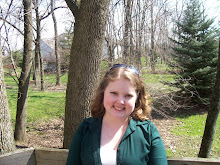I do not claim to be an expert on the Constitution (I will leave that to Dr. Mayer, or David, thank you very much), but I did take enough Con Law in college to know that SCOTUS doesn't really have a coherent view on what those "sixteen words" really mean, or how to apply them in a societal context.
When I took Modern American Law, Dr. Mayer assigned us a case from the text that we had to prepare and present to the class. I was assigned Lynch v. Donnelly , which regarding the display of a creche on public property. The previously decided case of Lemon v. Kurtzman provided what is known as the "Lemon test" in American law, which is three-pronged:
1. The government's action must have a legitimate secular purpose;
2. The government's action must not have the primary effect of either advancing or inhibiting religion, and
3. The government's action must not result in an "excessive entanglement" with Religion.
All three prongs must be met in order for something to appease the "sixteen words." Well in Donnelly the Court decided that the creche met all those principles and thus was allowed to be displayed. So in that case the creche was OK. But the spotty application of the Lemon test has lead to a more case-by-case basis than an overarching standard.
(OK that was waaay more law-school geekery that I wanted to put in here. Oh well) So back to my point and Fr. Neuhaus.
The First Amendment's dealings with religion are mostly a result of the fact that England had (and has), as we know, a 'state-sponsored' religion (The COE)and the founding of America had its roots in the quest for religious freedom. They didn't want to see a similar religious tyranny here. So the government "endorsement" of religion means, pretty simply, that the President can't come out and declare, "since I am a Methodist, you must all be Methodists, or we'll tax/persecute/etc. you and your families for not converting to the national religion."
As Fr. neuhaus notes, there are two clauses: The "Establishment" clause (above) and the "free exercise" clause. And it seems to me that free exercise gets trampled an awful lot. If we're going to have a menorah and a star and all that good stuff, why can't we have a creche? Christmas trees are Christmas trees, not holiday trees! If a school is having a Christmas concert, they are going to sing Christmas songs , and this should not shock anyone. If you do not want your child exposed to this, do not enroll them in choir, or work it out with the director so they can not sing the Christmas stuff. When I was in high school we sang the Christmas stuff, as well as 1 or 2 Hannukah songs (which are hard to find, let me tell you). Why is it that when we're called to be tolerant of other religions, Christianity is somehow left out? That we must be tolerant but ask nothing in return?
It seems that in all this court wrangling, common sense has been forgotten. Will it kill us all if a bunch of third graders sing "Silent Night" at their concert? No. I'm sorry, but the vast majority of good music literature is religious in nature. Deal with it . Especially at Christmas. Besides, those songs have great, touchy-feely messages the libs should love, like "Peace on Earth" and all that jazz. Can we all get on board with that?
Subscribe to:
Post Comments (Atom)



No comments:
Post a Comment